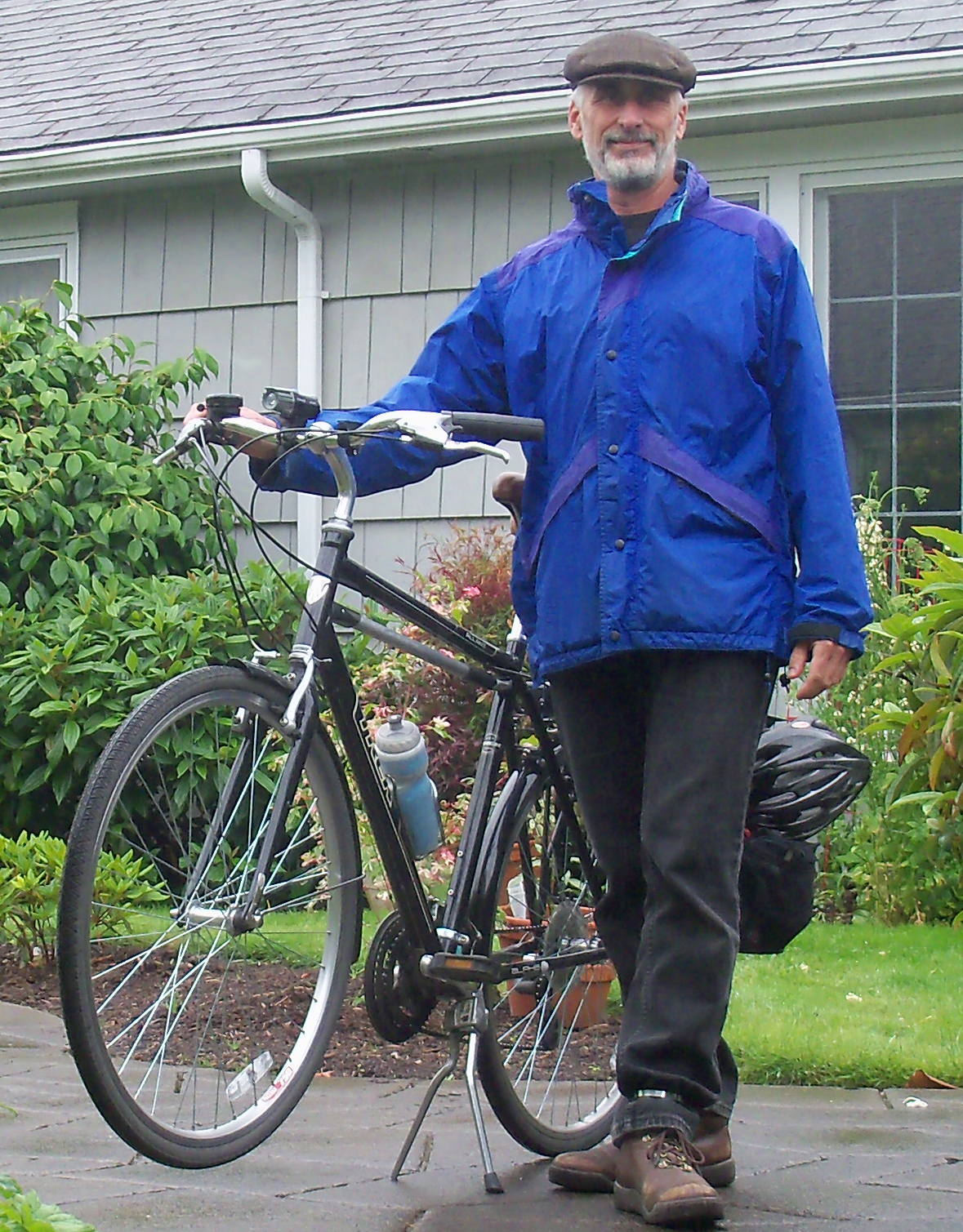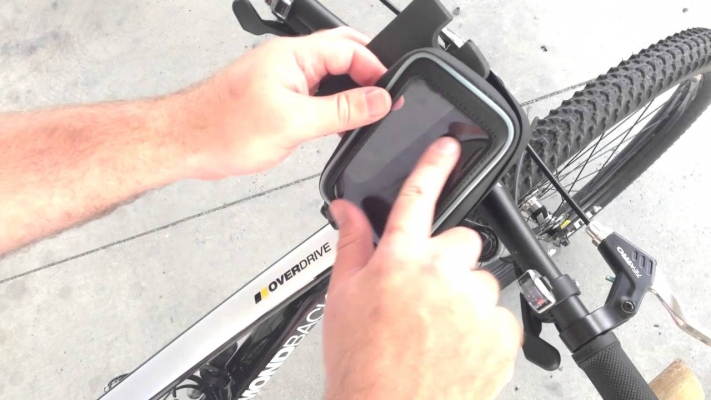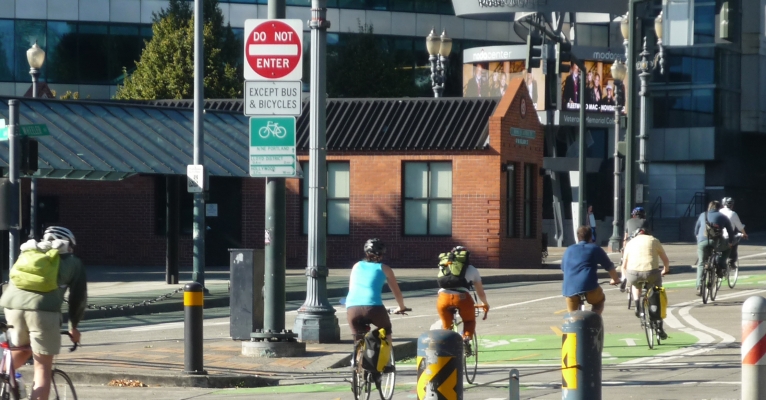Watch video
View slides
ORcycle is a new smartphone application (for both Android and iOS) developed by Transportation, Technology, and People (TTP) lab researchers at Portland State University as part of an Oregon Department of Transportation (ODOT) research project. ORcycle collects user, route, infrastructure, crash, and safety data. ORcycle was successfully launched in early November 2014 and presents many improvements over existing or similar apps. Initial data findings and insights will be presented. Lessons learned as well as opportunities and challenges associated with smartphone data collection methods will be discussed. More information about the app can be found here: http://www.pdx.edu/transportation-lab/orcycle
Read moreWatch video
View slides
Summary: Researchers from the transportation, planning and health fields share the common goal of promoting physically active lifestyle. One challenge that researchers often face is the measurement of physical activity, particularly among children. This is because the sporadic nature of children’s physical activity patterns makes it difficult to recall and quantify such activities. Additionally, children’s lower cognitive functioning compared to adults prevents them from accurately recalling their activities. This presentation will describe the design and application of a novel self-report instrument - the Graphs for Recalling Activity Time (GReAT) - for measuring children’s activity time use patterns. The instrument was applied in a study of children’s risk for obesity and diabetes in a predominately Hispanic community in Milwaukee, WI. Time-use data for two weekdays and one weekend day were collected for various physical and sedentary activities. The data was then assessed against measurements of the children’s cardiovascular fitness, weight status and insulin resistance through exploratory analysis and structured equation modeling. Findings on GReAT’s reliability and new evidence on the impacts of time-use in different activities on children’s risk for...
Read moreView slides
Watch video:
The City of Portland and the Metropolitan Region have strong policies in place to encourage transportation through means other than the single-occupancy vehicle. Both governments have numeric goals for the proportion of trips to be made by walking, bicycling, transit, shared vehicles, working at home and driving alone. Indeed, the City of Portland desires that by 2035 no more than thirty percent of commute trips be made by people driving alone. Similar policies have driven transportation planning in the city and region for decades.
To understand if these policies will be effective it's necessary to understand whether their antecedents have been effective. The Portland region has been investing in transit, bicycling and walking for more than two decades? Are we moving the needle? Have we been effective?
Roger's presentation will take a look at regional data for the period 2000-2014 to assess the effectiveness of our efforts and use that information to suggest pathways forward.
 Roger Geller has been Portland, Oregon’s bicycle coordinator since 2000...
Roger Geller has been Portland, Oregon’s bicycle coordinator since 2000...
The video begins at 3:55.
View slides
Abstract: Portland is planning to launch a bike share system. Bike share is a new form of public transit that is rapidly spreading through the United States. In 2009, bike share operated in two U.S. cities. Today, 20 US cities operate systems with another 15 in the planning stages. In several cities, including Denver, Minneapolis and Washington, DC bike share has demonstrated the ability to bring new people to bicycling while reducing single occupancy vehicle trips. How will bike share work in the nation’s most bike friendly city (doesn’t everybody already have a bike)? What challenges does Portland face, and what opportunities does bike share offer to reach the Portland’s Bike Plan for 2030’s ambitious goals?
Speaker Bio: Steve Hoyt-McBeth is a project manager in the Portland Bureau of Transportation’s Active Transportation Division. He has worked on bike share at PBOT since 2008. Steve also manages PBOT’s employer and commuter Transportation Demand Management program, SmartTrips Business. He has 15 years experience working with local governments and neighborhoods in Oregon and California on land use, energy and transportation issues. Steve is a graduate of the University of Oregon.
The video begins at 3:15.
In 2005, Davis, California was the first city in the U.S. to be named a Platinum-level Bicycle Friendly Community by the League of American Bicyclists. Although Davis has long been held up as a model bicycling community, where residents bike as a normal part of their daily lives, it has not been rigorously studied. Several studies underway at UC Davis are helping to fill this gap: an analysis of the history of bicycling policy in Davis; a behavioral study of factors contributing to high levels of bicycling in Davis in comparison; and an evaluation of a recent campaign to get kids to bicycle to soccer games. This presentation offers highlights from a three studies to provide a critical assessment of Davis as a bicycling community.
Susan Handy is a professor in the Department of Environmental Science and Policy and the director of the Sustainable Transportation Center at the University of California Davis. Her research focuses on the connections between land use and transportation, and she is well known for her work on the impact of neighborhood design on travel behavior. She serves on three committees of the Transportation Research Board and on the editorial boards of several journals in the fields of planning, transportation, and public health.


